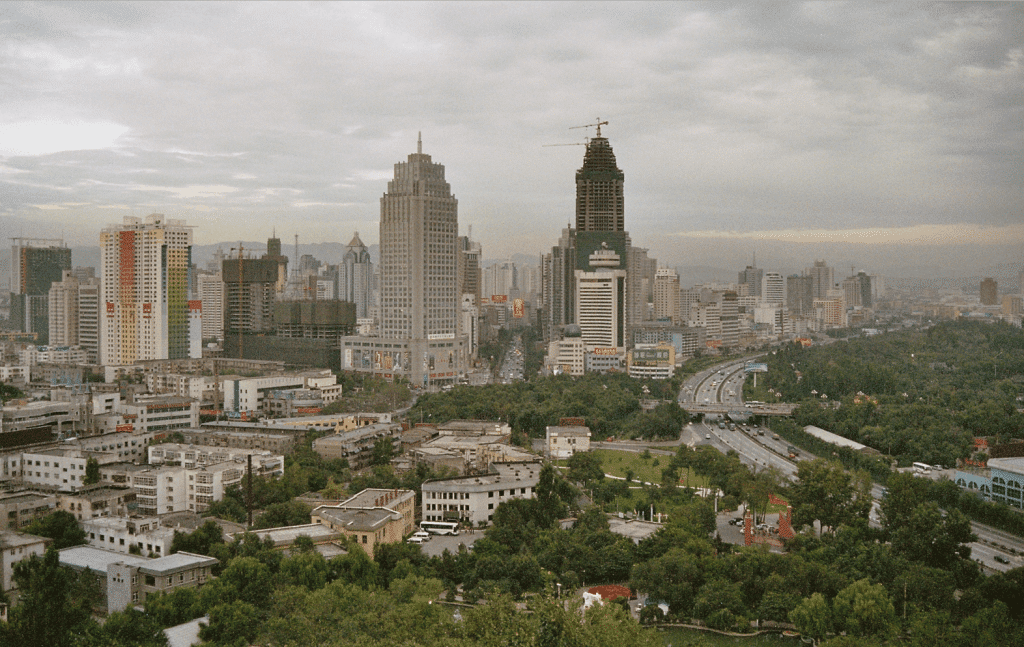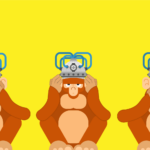Ultrasounds and blood draws: An account of Chinese government oppression of the Uighurs
By Matt Field | July 11, 2019
 The Chinese city of Urumqi in Xinjiang. Credit: Alexander Flühmann via Wikimedia Commons. CC BY-SA 3.0.
The Chinese city of Urumqi in Xinjiang. Credit: Alexander Flühmann via Wikimedia Commons. CC BY-SA 3.0.
When Alim, a Uighur grad student studying in the United States, flew back home to Xinjiang, a province of China, he was immediately detained at the airport. Not for a few hours while authorities checked his passport or paperwork, but for 28 days. While in detention he had seemingly every part of his body photographed, analyzed, and logged.
For years, China’s government has been tightening its grip on the Xinjiang region, where Uighurs make up close to half the population. A United Nation’s human rights panel has said that the authorities have put one million Uighurs, a Muslim ethnic group, in interment camps. Reporters have repeatedly noted the surveillance cameras and other sophisticated technology that bolster government oppression of the Uighurs. But Alim’s story, told on Planet Money, an NPR podcast, puts the trends and data points of Chinese oppression of Uighurs in a human perspective, as Alim tells listeners what happened to him and, by extension, what’s happening to many others in Xianjiang.
The hosts introduce their interviewee appropriately as “our guide into the police state.” In fact, the voice listeners hear is not Alim’s, a pseudonym to begin with, but that of a voice actor. Voice recognition software can pierce through any distortion added during production, prompting NPR staff to take extra precautions to preserve Alim’s anonymity.
Xinjiang, a province with about 20 million residents, is difficult to report on. New reports suggest that authorities surreptitiously download a surveillance app onto the phones of people visiting the region. The app reportedly searches phones for red-flag items, including scanned pages of Arabic text. The government describes the camps housing the Uighurs as training centers with a counter-extremism and skills-building focus. They’re being built in a place so inaccessible to journalists that a prime source for information about them has been Google Earth or other satellite photos that show massive construction around Xinjiang.
So Alim’s first person account of how life has changed in Xianjiang is particularly striking.
In the summer of 2017, Alim flew home and was immediately questioned for four hours before being told he was being arrested for disrupting the societal order. That’s when he saw just how sophisticated and far reaching state surveillance of Uighurs like him had become. “They took me to a room to do an ultrasound,” he told NPR. “Of my belly, of my organs, I guess.”
In all, the authorities seemed to be building a complete profile of him, of his face, of his voice, of his blood. They collected Alim’s blood sample and put it in a drawer with that from many others. “I could see easily hundreds of other samples, because I could see people’s names and their ID cards, just like mine, attached to that blood sample,” Alim said.
And while it’s difficult to say for certain why authorities were collecting so many blood samples, NPR tracked down a Yale University geneticist, Kenneth Kidd, who had been working to find genetic markers for different ethnic groups. A few years ago, Kidd’s problem was that he didn’t have enough samples from certain groups to produce genetic profiles. As it turns out, the Chinese Ministry of Public Security was willing to help. A scientist from the ministry spent a year with Kidd at Yale. Together they published a paper on genetic markers for the Uighurs, as well as other groups who are being kept under close watch by Beijing.
The Chinese government’s sophisticated surveillance web is troubling enough, but Alim highlights another subtler effect of it all. After being freed from detention, he noticed that his relatives, friends, and acquaintances, cautious over the ubiquitous surveillance, had stopped talking about anything of substance. “It still kind of felt like prison. I felt like I had no freedom,” he, via his voice-double, said, “like, even though I was technically free.”
There are the beginnings of signs that international pressure is building on China to end some of the harshest elements of its treatment of Uighurs. The representatives of 22 countries signed a letter to the president of the United Nations Human Rights Council criticizing China over its actions in Xinjiang, including unlawful detentions, the construction of large detention facilities, and the surveillance of Uighurs.
Publication Name: NPR's Planet Money
To read what we're reading, click here
Together, we make the world safer.
The Bulletin elevates expert voices above the noise. But as an independent nonprofit organization, our operations depend on the support of readers like you. Help us continue to deliver quality journalism that holds leaders accountable. Your support of our work at any level is important. In return, we promise our coverage will be understandable, influential, vigilant, solution-oriented, and fair-minded. Together we can make a difference.
Keywords: Uighur, United Nations Human Rights Council, Xinjiang
Topics: Disruptive Technologies, What We’re Reading














